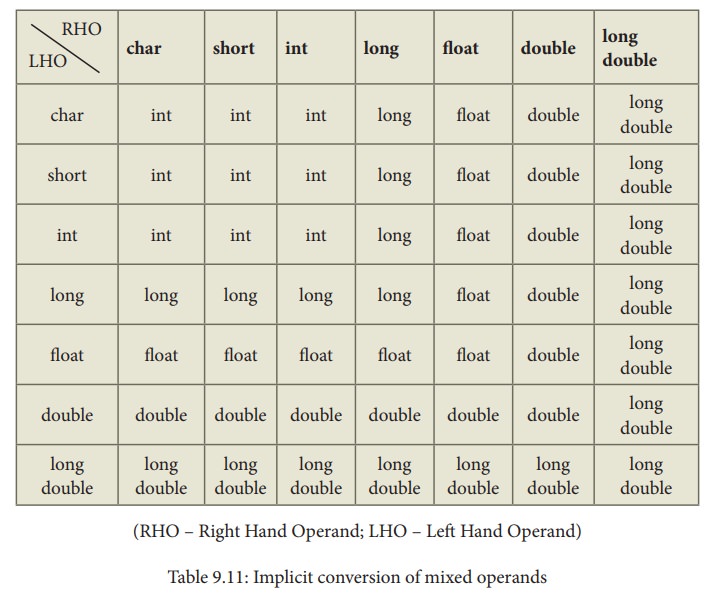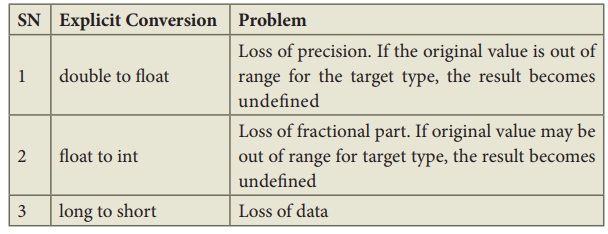Chapter: 11th Computer Science : Chapter 9 : Introduction to C++
C++: Type Conversion
Type Conversion
The
process of converting one fundamental type into another is called as “Type
Conversion”. C++ provides two types of conversions.
(1)
Implicit type conversion
(2)
Explicit type conversion.
(1) Implicit type conversion:
An
Implicit type conversion is a conversion performed by the compiler
automatically.
So,
implicit conversion is also called as “Automatic
conversion”.
This
type of conversion is applied usually whenever different data types are
intermixed in an expression. If the type of the operands differ, the compiler
converts one of them to match with the other, using the rule that the “smaller”
type is converted to the “wider” type, which is called as “Type Promotion”.
For example:
#include <iostream>
using namespace std;
int main()
{
int a=6;
float b=3.14;
cout << a+b;
}
![]()
![]()
![]()
![]() In the above program, operand a is an int type and b
is a float type. During the execution of the program, int is converted into a
float, because a float is wider than int. Hence, the output of the above
program will be: 9.14
In the above program, operand a is an int type and b
is a float type. During the execution of the program, int is converted into a
float, because a float is wider than int. Hence, the output of the above
program will be: 9.14
The
following Table 9.11 shows you the conversion pattern.

(2) Explicit type conversion
C++
allows explicit conversion of variables or expressions from one data type to
another specific data type by the programmer. It is called as “type casting”.
Syntax:
(type-name)
expression;
Where
type-name is a valid C++ data type to which the conversion is to be performed.
Example:
#include <iostream>
using namespace std;
int main( )
{
float varf=78.685;
cout << (int) varf;
}
In
the above program, variable varf is
declared as a float with an initial
value 78.685. The value of varf is
explicitly converted to an int type
in cout statement. Thus, the final output will be 78.
During
explicit conversion, if you assign a value to a type with a greater range, it
does not cause any problem. But, assigning a value of a larger type to a
smaller type may result in loosing or loss of precision values.

Table
9.12 – Explicit Conversion Problems
Example:
#include <iostream>
using namespace std;
int main()
{
double
varf=178.25255685;
cout << (float)
varf << endl;
cout << (int)
varf << endl;
}
Output:
178.253
178
Related Topics